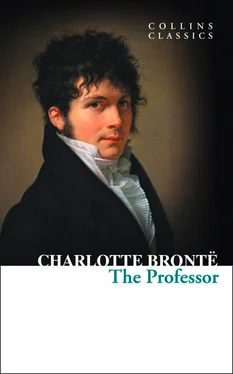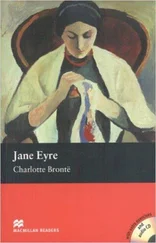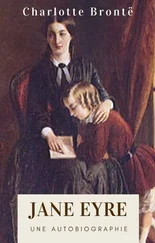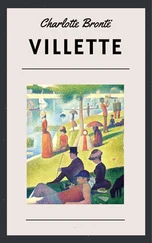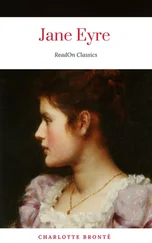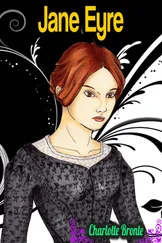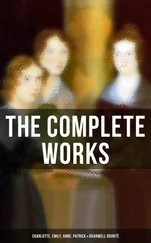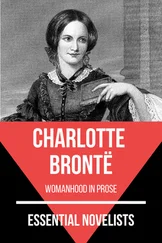‘Yes, Mr Crimsworth, you will find I have a good memory.’
I said no more. I did not think the time was come for much parley. I had an instinctive feeling that it would be folly to let one’s temper effervesce often with such a man as Edward. I said to myself, ‘I will place my cup under this continual dropping; it shall stand there still and steady; when full, it will run over of itself – meantime patience. Two things are certain. I am capable of performing the work Mr Crimsworth has set me; I can earn my wages conscientiously, and those wages are sufficient to enable me to live. As to the fact of my brother assuming towards me the bearing of a proud, harsh master, the fault is his, not mine; and shall his injustice, his bad feeling, turn me at once aside from the path I have chosen? No; at least, ere I deviate, I will advance far enough to see whither my career tends. As yet I am only pressing in at the entrance – a strait gate enough; it ought to have a good terminus.’ While I thus reasoned, Mr Crimsworth rang a bell; his first clerk, the individual dismissed previously to our conference, re-entered.
‘Mr Steighton,’ said he, ‘show Mr William the letters from Voss Brothers, and give him English copies of the answers; he will translate them.’
Mr Steighton, a man of about thirty-five, with a face at once sly and heavy, hastened to execute this order; he laid the letters on the desk, and I was soon seated at it, and engaged in rendering the English answers into German. A sentiment of keen pleasure accompanied this first effort to earn my own living – a sentiment neither poisoned nor weakened by the presence of the taskmaster, who stood and watched me for some time as I wrote. I thought he was trying to read my character, but I felt as secure against his scrutiny as if I had had on a casque with the visor down, or rather I showed him my countenance with the confidence that one would show an unlearned man a letter written in Greek; he might see lines, and trace characters, but he could make nothing of them; my nature was not his nature, and its signs were to him like the words of an unknown tongue. Ere long he turned away abruptly, as if baffled, and left the counting-house; he returned to it but twice in the course of that day; each time he mixed and swallowed a glass of brandy-and-water, the materials for making which he extracted from a cupboard on one side of the fireplace; having glanced at my translations – he could read both French and German – he went out again in silence.
I served Edward as his second clerk faithfully, punctually, diligently. What was given me to do I had the power and the determination to do well. Mr Crimsworth watched sharply for defects, but found none; he set Timothy Steighton, his favourite and head man, to watch also. Tim was baffled; I was as exact as himself, and quicker. Mr Crimsworth made inquiries as to how I lived, whether I got into debt – no, my accounts with my landlady were always straight. I had hired small lodgings, which I contrived to pay for out of a slender fund – the accumulated savings of my Eton pocket-money; for as it had ever been abhorrent to my nature to ask pecuniary assistance, I had early acquired habits of self-denying economy; husbanding my monthly allowance with anxious care, in order to obviate the danger of being forced, in some moment of future exigency, to beg additional aid. I remember many called me miser at the time, and I used to couple the reproach with this consolation – better to be misunderstood now than repulsed hereafter. At this day I had my reward; I had had it before, when on parting with my irritated uncles one of them threw down on the table before me a £5 note, which I was able to leave there, saying that my travelling expenses were already provided for. Mr Crimsworth employed Tim to find out whether my landlady had any complaint to make on the score of my morals; she answered that she believed I was a very religious man, and asked Tim, in her turn, if he thought I had any intention of going into the Church some day; for, she said, she had had young curates to lodge in her house who were nothing equal to me for steadiness and quietness. Tim was ‘a religious man’ himself; indeed, he was ‘a joined Methodist’, which did not (be it understood) prevent him from being at the same time an engrained rascal, and he came away much posed at hearing this account of my piety. Having imparted it to Mr Crimsworth, that gentleman, who himself frequented no place of worship, and owned no God but Mammon, turned the information into a weapon of attack against the equability of my temper. He commenced a series of covert sneers, of which I did not at first perceive the drift, till my landlady happened to relate the conversation she had had with Mr Steighton; this enlightened me; afterwards I came to the counting-house prepared, and managed to receive the millowner’s blasphemous sarcasms, when next levelled at me, on a buckler of impenetrable indifference. Ere long he tired of wasting his ammunition on a statue, but he did not throw away the shafts – he only kept them quiet in his quiver.
Once during my clerkship I had an invitation to Crimsworth Hall; it was on the occasion of a large party given in honour of the master’s birthday; he had always been accustomed to invite his clerks on similar anniversaries, and could not well pass me over; I was, however, kept strictly in the background. Mrs Crimsworth, elegantly dressed in satin and lace, blooming in youth and health, vouchsafed me no more notice than was expressed by a distant move; Crimsworth, of course, never spoke to me; I was introduced to none of the band of young ladies, who, enveloped in silvery clouds of white gauze and muslin, sat in array against me on the opposite side of a long and large room; in fact, I was fairly isolated, and could but contemplate the shining ones from affar, and when weary of such a dazzling scene, turn for a change to the consideration of the carpet pattern. Mr Crimsworth, standing on the rug, his elbow supported by the marble mantelpiece, and about him a group of very pretty girls, with whom he conversed gaily – Mr Crimsworth, thus placed, glanced at me; I looked weary, solitary, kept down like some desolate tutor or governess; he was satisfied.
Dancing began; I should have liked well enough to be introduced to some pleasing and intelligent girl, and to have freedom and opportunity to show that I could both feel and communicate the pleasure of social intercourse – that I was not, in short, a block, or a piece of furniture, but an acting, thinking, sentient man. Many smiling faces and graceful figures glided past me, but the smiles were lavished on other eyes, the figures sustained by other hands than mine. I turned away tantalized, left the dancers, and wandered into the oak-panelled dining-room. No fibre of sympathy united me to any living thing in this house; I looked for and found my?mother’s picture. I took a wax taper from a stand, and held it up. I gazed long, earnestly; my heart grew to the image. My mother, I perceived, had bequeathed to me much of her features and countenance – her forehead, her eyes, her complexion. No regular beauty pleases egotistical human beings so much as a softened and refined likeness of themselves; for this reason, fathers regard with complacency the lineaments of their daughters’ faces, where frequently their own similitude is found flatteringly associated with softness of hue and delicacy of outline. I was just wondering how that picture, to me so interesting, would strike an impartial spectator, when a voice close behind me pronounced the words, ‘Humph! there’s some sense in that face.’
I turned; at my elbow stood a tall man, young, though probably five or six years older than I – in other respects of an appearance the opposite to common place; though just now, as I am not disposed to paint his portrait in detail, the reader must be content with the silhouette I have just thrown off; it was all I myself saw of him for the moment: I did not investigate the colour of his eyebrows, nor of his eyes either; I saw his stature, and the outline of his shape; I saw, too, his fastidious-looking retroussé nose; these observations, few in number, and general in character (the last excepted), sufficed, for they enabled me to recognize him.
Читать дальше
